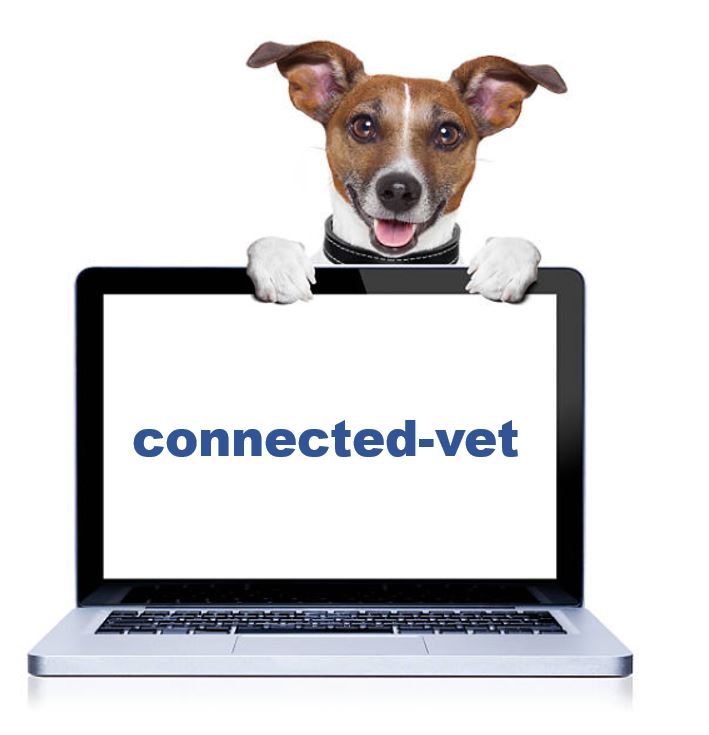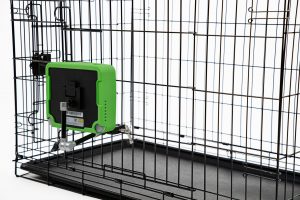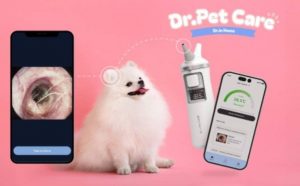Cat tech gets less investment than dog tech, and the cat tech market is often viewed as ‘niche’.
But with pet ownership booming since the start of Covid-19, is now the time for feline-focused hardware and services to flourish? What challenges still remain for the market with nine lives?
During our latest Sifted Talks webinar, we asked these questions and more to our panel of industry experts: Samuel Ryckewaert, cofounder of Feelloo, which produces a wearable GPS tracker for cats; Kathrin Burckhardt, cofounder of pet-sitting platform, Cat in a Flat; and Rebecca Hunt, VC at Octopus Ventures, who recently invested in personalised cat food supplier KatKin.
Sifted Talks panellists for “It’s meow or never: Is cat tech about to take off?”
1. Cats aren’t a ‘niche’ market, and investor interest is growing
The cat market may be underdeveloped, but it certainly isn’t niche — and VCs are taking notice.
A quarter of households in Europe have a cat, with over 100m living on the continent. The cat food market is estimated at $50bn worldwide. Hunt said this huge market potential was what drew Octopus Ventures towards investing in KatKin.
While there is growing traction in the cat tech market, there is still more investment in dog tech startups. Burkhardt suggests this could be down to dogs’ increased visibility in public spaces, whereas cats are territorial and can be less social creatures.
“Investors are very open to opportunities in the cat market. It’s clear this market is growing, and that the overall offering of the market is still relatively limited when compared with dogs” — Samuel Ryckewaert, cofounder of Feelloo
2. Innovation drives markets, not investment
So why is the cat tech market still seen as ‘limited’? The answer, according to Ryckewaert, is that the technology just hasn’t been there to create opportunities. He notes the market is only now entering a period of premiumisation, which is a major step towards attracting VC interest.
“Investors don’t create markets, entrepreneurs do… It has only been in the last couple of years that the volume and the quality of the cat market has come through… Most investors like to see those numbers around traction, customer love and retention.” — Rebecca Hunt, VC at Octopus Ventures
3. Hardware remains a tough route to market
As discussed during the Sifted Talks on pet trackers in January, producing hardware is a difficult route to market for startups. Ryckewaert echoed the viability of the product remains a sticking point for customers and investors alike.
“It’s hard to convince [investors] of the ability of a hardware product. That’s still one of our main challenges. It’s not easy to have a hardware product, because of the many potential technical issues.” — Samuel Ryckewaert, cofounder of Feelloo
4. Focus on feline wellbeing is driving innovation
More millennials are picking pet ownership over parenthood which, Hunt says, is an indication that spending on pet gadgets will keep growing. Owners want to know more about their pets and make savvy decisions that will improve their quality of life. This has created an opportunity for startups to enter the market, and deliver solutions that put cats’ health and wellbeing first.
“Small companies are really well-positioned to innovate. They’re closer to their customers, they can innovate and iterate, they can try out new technologies.” — Rebecca Hunt, VC at Octopus Ventures
5. Personalisation creates opportunities for additional services
More knowledge of pet health has led to a greater focus on the individual needs of each cat and owner. Gaining this profile of cats’ needs and behaviour creates opportunities to expand a startup’s service offering.
“As part of each cat-sitting we encourage the owner to leave a detailed description of their cat’s habits. That’s very valuable data. We know their habits, we know what their favourite treats are, how old the cat is… As we are growing, this additional information becomes more valuable… We can use this to provide a 360 experience.” — Kathrin Burckhardt, cofounder of Cat in a Flat
6. Communities are a growth opportunity
As the number of pet owners grow, so too does the potential for building communities. During tough times, growing a loyal customer base allows startups to draw back spend during lean periods and prepare for quick growth when things turn around.
“We call [Cat in a Flat’s community] our stardust. It’s not a product, it doesn’t require a supply chain. In times of Covid, we can shrink, but we can come back again. There’s a lot of expansion possibility and flexibility.” — Kathrin Burckhardt, cofounder of Cat in a Flat
7. Customer service is king
Whether the end user is a human or animal, creating a necessary product backed by great customer service remains the goal. For example, KatKin is hiring ex-veterinary nurses in its client services teams to provide expert advice on nutrition for users. This in turn will create a loyal customer base.
Lire la suite: sifted.eu






